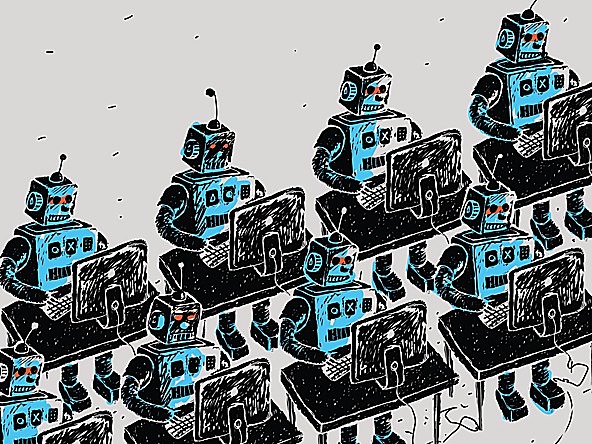
Is AI the future of customer experience?
AI is something of a buzzword right now - especially when it comes to how it can transform the customer experience. It’s thought that 85% of customer relationships will take place without human interaction by next year, and Servion has even predicted that AI will power 95% of all customer interactions by 2025. Not only that, but artificial intelligence such as chatbots are set to be responsible for cost savings of over $8 billion per year by 2022, up from $20 million in 2017. It’s easy to see why AI is such a hot topic in the retail sector!
Customers today expect a completely unified experience across all platforms and are pretty vocal when companies fail to deliver - and that’s another reason why AI is such a gamechanger. From Facebook’s suggested ads to Sephora’s Visual Artist, artificial intelligence is transforming CX. When used properly it can completely reimagine the customer experience by improving response times, offering a more personalised service and delivering an end-to-end customer journey. Read on to find out more about the different types of AI, how they are used in customer experience, and what the future holds…

Chatbots and virtual assistants to keep up with consumers’ busy lives
Chatbots are AI-based conversation agents that are becoming more popular by the day. You know when you visit a website and a little conversation box pops up offering to help? That right there is a chatbot. They’re designed to simulate human interactions and provide 24/7 personalised responses, making them perfect for handling first-level enquiries and providing answers to simple and frequently asked questions. Virtual assistants are growing in popularity too - and not just in the home. Capital One has taken Alexa to the next level by allowing customers to access their bank accounts through it, and similarly, Liberty Insurance even allows customers to check the status of their claim through Google Home. What’s the appeal? Well, the benefits of chatbots and virtual assistants are huge, from eliminating frustrating delays in customer service to allowing companies to keep up with their customers’ busy lives.

AI-driven analytics for an even better customer experience
You know when you buy something on Amazon and it comes up with other suggestions of things you might like? Or the Facebook ads that seem to be reading your mind? That’s contextual analytics - and these analytically generated recommendations, next best actions and product offers are moving beyond simple recommendations to something much more powerful. A good example is Spotify’s intelligent playlist, Discover Weekly, which creates custom generated playlists based on things such as listening history, likes, and even what other people with similar tastes have listened to and enjoyed. These AI-driven experiences help to build loyalty, trust and satisfaction, whilst also enabling customers to make quick decisions. Rather than having to trawl through thousands of options, there’s a suitable choice that’s already been found for them, which saves time and helps improve the entire customer experience.

Personalisation and improved insights to predict what people want
Personalisation is another huge advantage of AI in customer experience. Optimal customer experience is achieved when a business remembers a customer and treats them with attention, respect and consideration throughout their customer journey. And let’s face it, customers today are demanding - which means CX is more important than ever. Today’s consumers don’t want a general email offer blasted out to them; rather they want targeted offers that directly address what they are looking for. AI helps with exactly that, by sifting through data and information to find out what really matters to customers, identify opportunities and create a personalised experience. It also allows businesses to spot trends and predict what customers will want in the future to help shape and improve future customer experience too.

Sounds great so far - but what are the concerns?
The main concerns with AI are ethical ones surrounding people knowing when they are dealing with a machine rather than another human. In order to address these concerns, AI basically needs to be as transparent as possible, especially in this era of fake news. But that’s not all - there’s also a lot of effort and resource that needs to go into making an AI, bot-based environment work effectively, especially in these early days of adoption. It’s not as simple as just embracing AI - there needs to be a dedicated team who work hard in the background to make sure the adoption of artificial intelligence runs as smoothly as possible.
AI is already an important part of the customer journey that will only continue to grow in popularity in the next few years. The biggest impact will be transforming customer service by making it automated, fast and hassle-free - however, in order for AI to continue to solve problems effectively, there needs to be a blended approach of man and machine.
If you’d like to find out more about how technology is transforming the retail sector and the impact this could have on market research, check out our latest blogs on technology and market research.



-Feb-19-2026-09-59-49-0345-AM.png)



.webp?width=500&name=shutterstock_370982855%20(1).webp)






